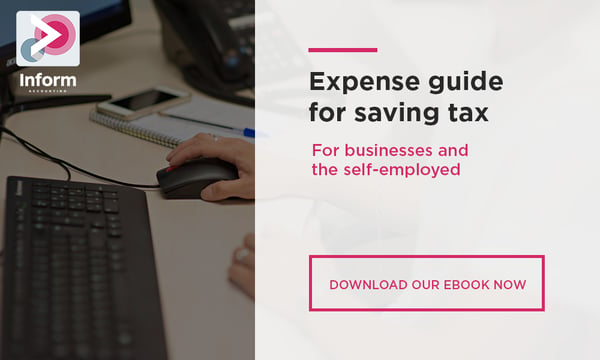BLOG
Delay to EU’s e-commerce directive raises questions for UK business

There are big changes on the horizon for all UK businesses, as the end of the Brexit transition period inches closer. But for e-commerce companies, additional significant changes are due to happen next year - the EU’s e-commerce directive was due to come into force on 1 January 2021, the same date as the end of the transition period.
However, because of the pandemic which rages on through Europe and beyond, the European Commission has proposed a delay to the implementation of the e-commerce changes until July 2021. The directive will change the rules for intra-EU business-to-consumer (B2C) supplies of goods with the result that all but the smallest businesses will have to account for VAT in the country of delivery.
As this significantly increases the number of countries in which many businesses would have to account for VAT, the EU is also introducing a new One Stop Shop (OSS) for VAT accounting. OSS is an expansion of the existing Mini One Stop Shop (MOSS) for digital services and is an integral part of the package without which accounting for VAT would not be viable for many businesses.
It is therefore also being delayed to 1 July 2021, should the Commission’s proposal be accepted. Though the proposal has yet to be ratified, the unexpected time and attention that tax authorities throughout the EU have had to devote to the COVID-19 crisis mean it will likely be met with support.
A delay to the implementation of OSS may be a positive step for UK businesses but this will very much depend upon whether there is an extension to the Brexit transition period. If the transition period is extended, UK businesses will gain extra time to plan for the E-Commerce Directive changes.
However, if the transition period ends on 31 December 2020, there will be a six-month window in which UK businesses will have to deal with the complexities of delivering from the UK, a non-EU country, to private customers in the EU.
Simplifying VAT
OSS is designed to simplify the VAT reporting required as a result of B2C intra-EU trade. It will apply not only to the VAT accounting for B2C intra-EU sales of goods but also to all B2C intra-EU services including electronically supplied services, as is currently the case under MOSS.
It also has the objective of reducing the VAT gap, estimated at around €137.5bn (£121bn), while adapting the EU’s VAT system to the digital economy.
But with simplifications and overhauls come complications for businesses in planning and preparing. Some of the major changes the e-commerce directive enacts are replacing all national VAT distance selling thresholds, which range from €35,000 to €100,000 or national currency equivalent, with an EU-wide threshold of €10,000.
Above this threshold, VAT will be due in the country of delivery, and it thus impacts where suppliers must account for VAT. It is significant that at the same time as introducing OSS, the EU is removing Low Value Consignment Relief (LVCR), which means that non-EU businesses will compete on an equal footing with EU companies in having to account for VAT on all their sales.
So why make the changes?
For the smallest companies, the EU-wide threshold of €10,000 will remove the need to account for VAT in other member states. For businesses who exceed this threshold, the simplification to VAT returns means that one OSS return can be filed in the Member State of Identification rather than VAT registrations and returns being required in multiple states.
However, it is important to note that the use of OSS is not obligatory; businesses can opt to maintain VAT registrations in all countries they operate in and this may be the most appropriate solution in some cases.
In general, OSS looks set to provide businesses a simplification and a lessening of the administrative burden of multiple member state registrations. However, it also requires significant preparation and does not completely remove the need for traditional VAT registrations; these will still be required depending on the specific circumstances of the business.
For example, if a UK business has a warehouse in another EU State, it will require a local VAT registration to account for local sales as OSS only allows for accounting of intra-EU transactions.
Another important thing for UK businesses to consider is that if the delay to OSS goes ahead but the Brexit transition period ends on 31 December 2020, in line with the current legal position, then UK businesses selling goods to private consumers will have to find a solution to the import of goods into the EU.
This is because the Import OSS – one of the OSS variations - will not be available to account for imports of goods up to €150. Some of the options to be considered are the use of EU warehouses and the importation of goods into a single member state. But whatever solution is used, there will be logistical challenges and additional costs to consider.
Finally, it is important to remember that, as with any attempts at harmonisation and simplification, there are multiple questions raised for every answer given. The adoption of the OSS has great potential, but businesses must carefully review their supply chains and rethink pricing structures as OSS may lead to VAT liabilities in countries where none currently exist. The likely extension prior to implementation offers UK e-commerce businesses extra time to plan for this seismic shift in EU VAT accounting but they need to be aware of the end to the Brexit transition period on 31 December 2020 and the need to plan effectively for this.
If both Brexit and OSS are delayed, businesses must use this time wisely - there is a clear imperative to plan, review supply chains and take COVID-19 related business fluctuations into careful account, to ensure seamless trading in a post-Brexit world where OSS is a reality.
Source: https://www.accountancydaily.co/delay-eus-e-commerce-directive-raises-questions-uk-business
Read more of Inform's tax blogs:
Live page: Accounting advice during business disruption
It's that wonderful time of the year...for fraudsters to pray on taxpayers!
Paying yourself a salary: What are the most tax efficient options for limited company owners?
Four key cashflow issues that could cripple your business (and how to avoid them)...




.jpg?width=1500&height=1000&name=amy-hirschi-K0c8ko3e6AA-unsplash-(5).jpg)

